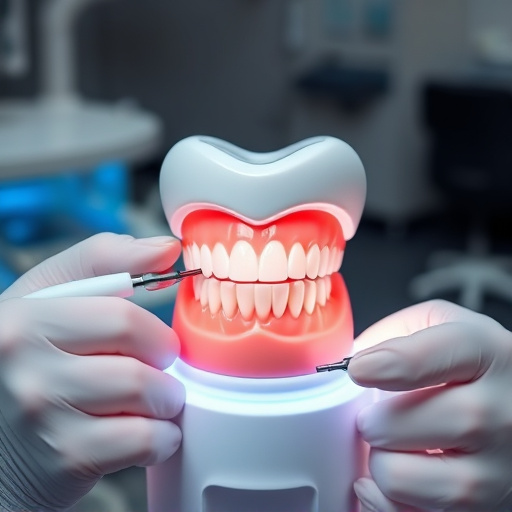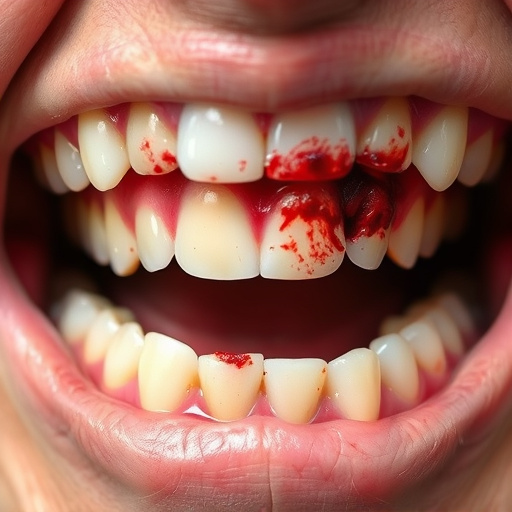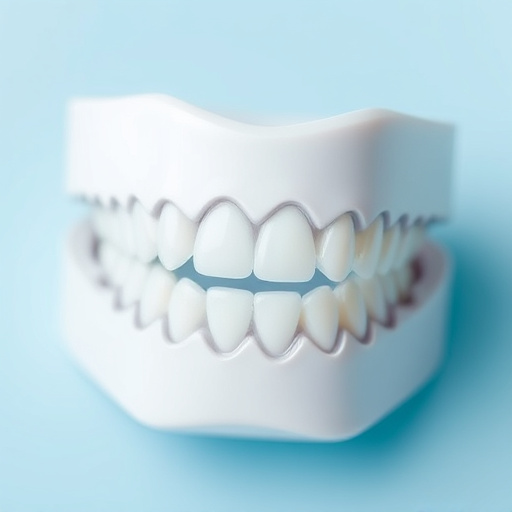Tooth sensitivity, caused by exposed dentin due to enamel weakening, can be treated from mild cases with soft brushes and desensitizing toothpaste to severe cases of dental bonding or even extractions. Dental bonding, a popular tooth sensitivity treatment, uses composite resin to seal dentin, offering instant relief without extensive dentistry. Comprehensive strategies, including fluorides, pastes, or gum grafting, address root causes for long-term oral health and confidence.
Do you suffer from tooth sensitivity? You’re not alone. Many people experience discomfort when consuming hot or cold foods. Fortunately, dental bonding is an effective, non-invasive procedure that can alleviate this issue. This article explores tooth sensitivity causes and delves into dental bonding as a promising treatment option. We’ll also uncover long-term solutions for managing sensitive teeth, providing you with lasting relief.
- Understanding Tooth Sensitivity and Its Causes
- Dental Bonding: A Non-Invasive Treatment Approach
- Effective Management and Long-Term Solutions for Sensitive Teeth
Understanding Tooth Sensitivity and Its Causes

Tooth sensitivity is a common issue that affects many people, causing discomfort and unease when eating or drinking certain foods and beverages. It’s a condition where the tooth’s enamel, which normally protects the dentin (the sensitive inner layer of the tooth), becomes weakened or damaged. This exposure can lead to a range of symptoms, from mild tingling to sharp pain. Various factors contribute to tooth sensitivity, including brushing too hard, periodontal disease, tooth decay, and even certain oral habits like grinding teeth (bruxism).
In general dentistry, understanding the underlying causes is crucial in developing an effective tooth sensitivity treatment plan. While some cases may require more intensive procedures such as dental bonding to seal and protect exposed dentin, many simple strategies can provide relief. These include switching to a soft-bristled toothbrush, using desensitizing toothpaste, avoiding acidic foods and drinks, and maintaining regular dental check-ups to monitor and address any issues early on, including preventing the need for tooth extractions as a last resort.
Dental Bonding: A Non-Invasive Treatment Approach

Dental bonding is a highly effective and non-invasive treatment option for managing tooth sensitivity, offering a conservative approach to restoring oral health. This procedure involves applying a composite resin material to the tooth surface, effectively sealing off exposed dentin and nerve endings. By acting as a protective layer, dental bonding helps alleviate discomfort associated with sensitive teeth without resorting to more invasive treatments like dental implants or wisdom tooth removal.
This restorative dentistry technique is particularly well-suited for individuals seeking a swift solution to address mild to moderate tooth sensitivity. The composite resin used in bonding not only provides aesthetic benefits by matching the natural tooth color but also serves as a durable barrier, promoting long-term relief from sensitive teeth. Unlike some other treatments, dental bonding avoids extensive drilling or surgical procedures, making it a convenient choice for those prioritizing minimal intervention in their oral care routine.
Effective Management and Long-Term Solutions for Sensitive Teeth

Tooth sensitivity can be effectively managed and treated through various dental procedures, offering long-term solutions for a comfortable smile. One popular and successful approach is dental bonding, which involves applying a tooth-colored resin to the affected areas. This method not only masks the sensitivity but also repairs damaged tooth enamel, providing a durable solution.
In addition to dental bonding, family dentistry and cosmetic dentistry professionals can offer tailored treatments. These may include specialized fluorides, desensitizing toothpastes, or even gum grafting for severe cases. By addressing the root causes and implementing these comprehensive strategies, individuals suffering from tooth sensitivity can find lasting relief, enhancing their overall oral health and self-confidence.
Tooth sensitivity treatment options like dental bonding can effectively alleviate discomfort, offering a non-invasive approach to managing sensitive teeth. By understanding the causes of tooth sensitivity, individuals can choose suitable solutions for long-term relief. Dental bonding procedures provide a quick and efficient method to strengthen and protect exposed dentin, ensuring a comfortable chewing experience without resorting to more extensive treatments. For many, this gentle technique is a game-changer in their pursuit of relief from sensitive teeth.














